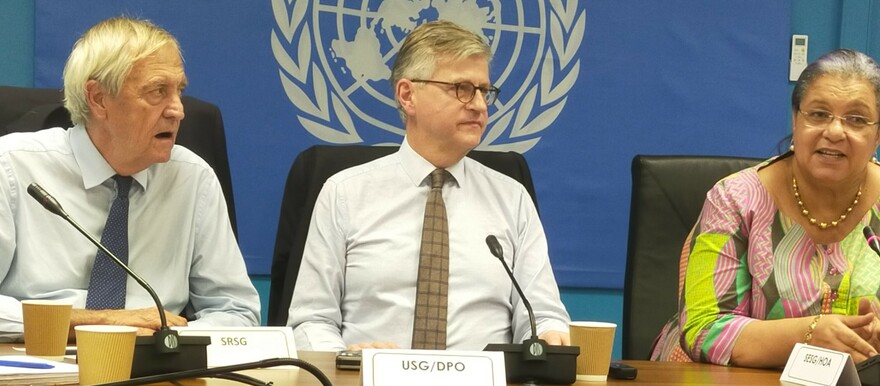The United Nations on Friday said the determination of the final status of the disputed Abyei region might be delayed following the outbreak of conflict in Sudan last year.
Addressing a joint press conference in Juba following the conclusion of a visit to South Sudan and Abyei, Hanna Serwaa Tetteh, the Special Envoy of the UN Secretary-General for the Horn of Africa, said it will be very hard to discuss the final status of Abyei at this time as it will be very hard to guarantee the implementation of any agreement reached given the current context in Sudan.
Her visit is part of a mission to understand the challenges, discuss the security situation, peace processes and electoral preparations in South Sudan with key stakeholders, and meet with state authorities, civil society and community members in South Sudan,
“If we were to facilitate a discussion between Sudan and South Sudan on the final status of Abyei, who will be our counterpart on the Sudanese side, given the current circumstances in Sudan? And even if we are able to do so, what will be the guarantee that any agreements reached could be implemented?” Serwaa asked.
She said it is unlikely that the final status of Abyei will be resolved anytime soon, given the fact that the conflict in Sudan has frozen any discussion between South Sudan and Sudan.
Serwaa emphasized the need for continuous dialogue to address the current wave of communal violence between the Twic community of Warrap State in South Sudan and the Ngok Dinka of Abyei.
“To emphasize the need for continuing inter-communal dialogue to address the difference between the two ethnic groups because, at the end of the day, that is how this matter will be resolved not by fighting, not by injuring, not hurting each other but by coming together to talk to each other,” Serwaa said.
For his part, Jean-Pierre Lacroix, Under-Secretary-General for Peace Operations, said tensions were still high between the Ngok Dinka and Twic communities who have been coexisting peacefully since time immemorial.
“From what we heard from those communities, the conclusion is that there are still tensions and there is still a level of mistrust that is significant. There are many issues; there are unresolved issues and the final status. We heard about a decision that was made a long time ago, but what we are aware of is that those two communities of Ngok and Twic were not fighting each other a year ago, and they hadn’t been fighting each other; they have been coexisting peacefully,” he said.
Lacroix called for humanitarian support to Abyei, adding that the people were suffering as a result of climate change and conflict, given the meagre resources.
“The communities in Abyei are suffering from a lack of resources, services, and the impact of climate change,” he said.




